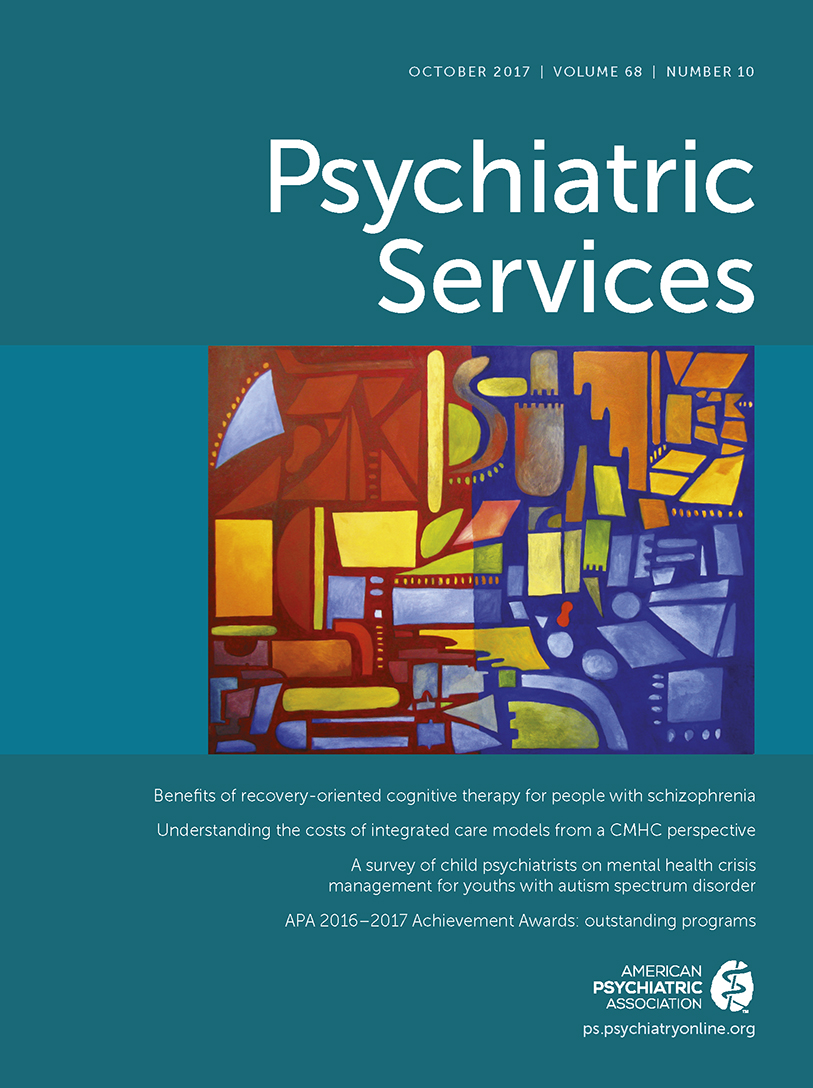A Randomized Controlled Trial of the Rochester Forensic Assertive Community Treatment Model
Abstract
Objective:
Forensic assertive community treatment (FACT) is an adaptation of the assertive community treatment model and is designed to serve justice-involved adults with serious mental illness. This study compared the effectiveness of a standardized FACT model and enhanced treatment as usual in reducing jail and hospital use and in promoting engagement in outpatient mental health services.
Methods:
Seventy adults with psychotic disorders who were arrested for misdemeanor crimes and who were eligible for conditional discharge were recruited from the Monroe County, New York, court system. Participants were randomly assigned to receive either FACT (N=35) or enhanced treatment as usual (N=35) for one year. Criminal justice and mental health service utilization outcomes were measured by using state and county databases.
Results:
Forty-nine participants (70%) completed the full one-year intervention period. Nineteen (27%) were removed early by judicial order, one was removed by county health authorities, and one died of a medical illness. Intent-to-treat analysis for all 70 participants showed that those receiving the FACT intervention had fewer mean±SD convictions (.4±.7 versus .9±1.3, p=.023), fewer mean days in jail (21.5±25.9 versus 43.5±59.2, p=.025), fewer mean days in the hospital (4.4±15.1 versus 23.8±64.2, p=.025), and more mean days in outpatient mental health treatment (305.5±92.1 versus 169.4±139.6, p<.001) compared with participants who received treatment as usual.
Conclusions:
The Rochester FACT model was associated with fewer convictions for new crimes, less time in jail and hospitals, and more time in outpatient treatment among justice-involved adults with psychotic disorders compared with treatment as usual.



